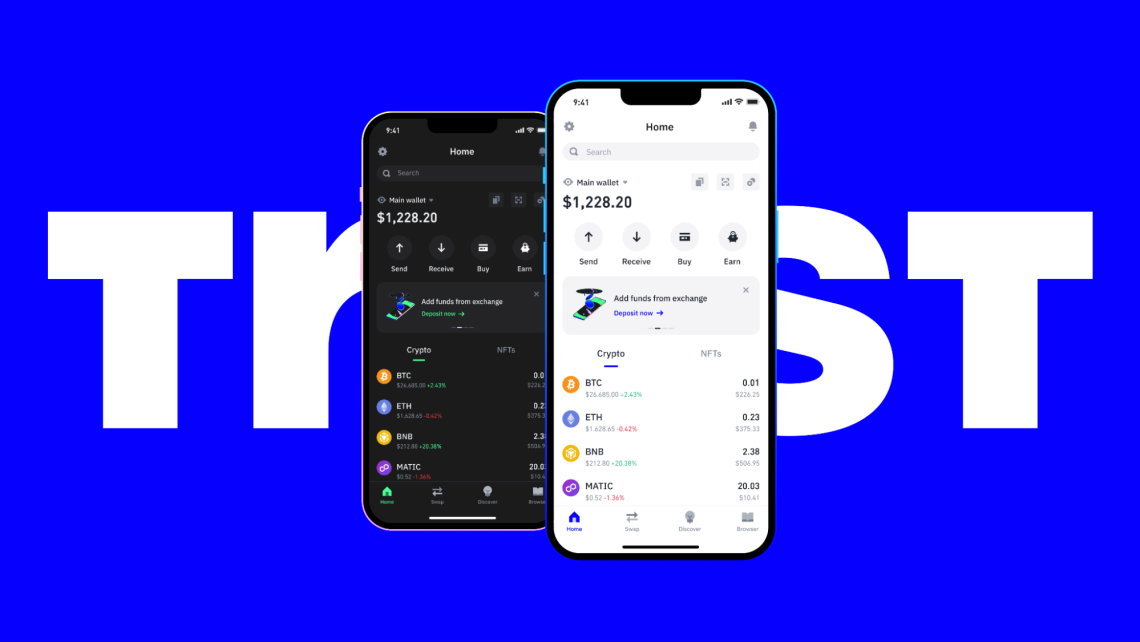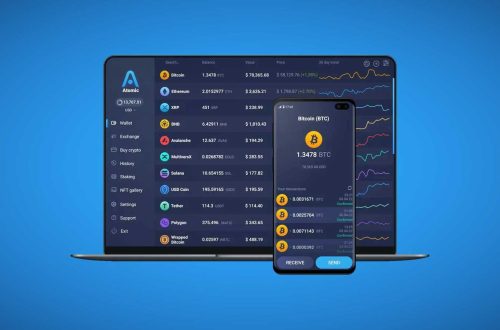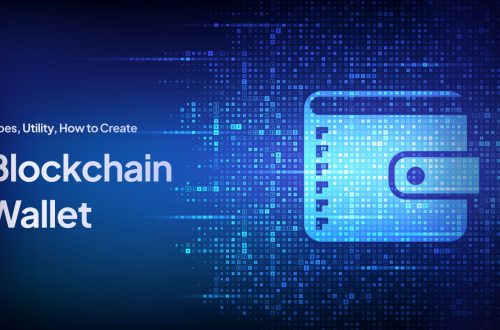As cryptocurrencies continue to revolutionize the financial world, digital wallets have become an essential tool for investors, traders, and users in the blockchain ecosystem. Among the numerous wallet options available, trustwallet stands out as one of the most popular and secure choices. This mobile-based wallet is known for its ease of use, strong security features, and wide range of supported cryptocurrencies and decentralized applications (dApps).
What is Trust Wallet?
Trust Wallet is a decentralized, non-custodial cryptocurrency wallet designed to store, manage, and interact with a wide variety of digital assets. It supports over 1 million cryptocurrencies, including popular tokens like Bitcoin, Ethereum, Binance Coin, and many others, along with a multitude of ERC-20, BEP-2, and BEP-20 tokens. The wallet allows users to send, receive, and store their cryptocurrencies, while also offering a secure platform for engaging with decentralized finance (DeFi) applications, staking, and NFT management.
Acquired by Binance in 2018, Trust Wallet has gained significant recognition for its user-friendly interface, top-tier security measures, and robust features. Despite being part of Binance’s ecosystem, Trust Wallet remains an independent app, ensuring its openness and flexibility.
Key Features of Trust Wallet
- Multi-Currency Support Trust Wallet supports over 60 blockchains and a wide range of cryptocurrencies, making it a one-stop solution for managing multiple digital assets. Whether you hold Bitcoin (BTC), Ethereum (ETH), Binance Coin (BNB), or lesser-known altcoins, Trust Wallet can accommodate your needs.
- Private and Secure Trust Wallet is a non-custodial wallet, meaning that users retain full control of their private keys. This gives users the ability to fully manage their assets without relying on a third-party service. The app uses strong encryption, including a 12-word recovery phrase, to ensure that only you can access your funds.
- Easy-to-Use Interface One of Trust Wallet’s standout features is its intuitive user interface. Whether you’re a beginner or an experienced cryptocurrency user, Trust Wallet provides an easy and smooth experience. Users can quickly view their balances, send and receive funds, and interact with DeFi applications directly from the wallet.
- DeFi and DApps Integration Trust Wallet allows seamless interaction with decentralized applications (dApps) and DeFi platforms. Users can access a variety of services, from decentralized exchanges (DEXs) like PancakeSwap to yield farming, staking, and borrowing/lending platforms. This integration enables users to leverage their crypto holdings in ways that traditional wallets cannot offer.
- Staking Capabilities Staking is one of the most lucrative aspects of the crypto world, and Trust Wallet offers built-in staking support for several cryptocurrencies. You can stake tokens like Tezos (XTZ), Cosmos (ATOM), and Tron (TRX) directly from the app and earn rewards without needing a third-party staking platform.
- NFT Management With the growing popularity of non-fungible tokens (NFTs), Trust Wallet has become a go-to solution for NFT collectors. The app allows users to store and view their NFTs securely, as well as interact with NFT marketplaces to buy and sell tokens.
- Cross-Platform Accessibility Trust Wallet is available for both Android and iOS devices, making it accessible to a wide range of users. Whether you’re on the go or at home, you can manage your crypto portfolio with ease.
How to Use Trust Wallet
- Download and Install The first step in using Trust Wallet is downloading the app from the Google Play Store or Apple App Store. After installation, open the app and set up your wallet.
- Create a New Wallet or Restore an Existing One Upon launching Trust Wallet for the first time, users can create a new wallet or restore an existing one using a 12-word recovery phrase. This recovery phrase is essential for restoring access to your wallet if you lose your device or need to reinstall the app.
- Add Cryptocurrencies Once your wallet is set up, you can add cryptocurrencies by searching for specific tokens or coins within the app and selecting “Receive” to get a wallet address. You can then send crypto from other wallets or exchanges to your Trust Wallet address.
- Staking and Earning Rewards Trust Wallet supports staking for several cryptocurrencies. To stake your assets, navigate to the “Staking” tab within the app, choose the asset you want to stake, and follow the simple instructions to start earning rewards.
- Connect to DApps To interact with decentralized applications (dApps), navigate to the “Browser” tab within Trust Wallet. From here, you can access a wide array of decentralized platforms, including exchanges, lending platforms, and NFT marketplaces.
Security Measures in Trust Wallet
Security is a top priority for Trust Wallet, and several features ensure that your digital assets remain protected:
- Private Keys and Seed Phrase: As a non-custodial wallet, Trust Wallet allows users to retain control over their private keys. The 12-word recovery phrase serves as a backup to restore the wallet if necessary.
- Biometric Authentication: Trust Wallet supports biometric authentication, such as fingerprint and face recognition, for an added layer of security when accessing the app.
- Encryption: All sensitive information, including private keys, is stored securely and encrypted on your device, providing additional protection from unauthorized access.
- No Access to Funds: Trust Wallet never holds your funds or private keys. This means that even in the unlikely event of a breach, your assets remain under your control.
Trust Wallet vs. Other Wallets
Trust Wallet is often compared to other popular cryptocurrency wallets, such as MetaMask, Coinbase Wallet, and Exodus. Here’s a quick comparison:
- MetaMask: Best known for Ethereum and ERC-20 token support, MetaMask is primarily focused on DeFi and dApp interactions. While it offers a browser extension, Trust Wallet is more mobile-centric and supports a wider range of assets beyond just Ethereum-based tokens.
- Coinbase Wallet: Owned by the Coinbase exchange, Coinbase Wallet is a user-friendly option but has limited support for staking and cross-chain assets. Trust Wallet, on the other hand, provides staking support for multiple coins and tokens across different blockchains.
- Exodus: Exodus is a desktop and mobile wallet that offers built-in exchange features. While it has a polished design, Trust Wallet’s decentralized and more extensive DeFi capabilities give it an edge for users seeking broader functionality.





